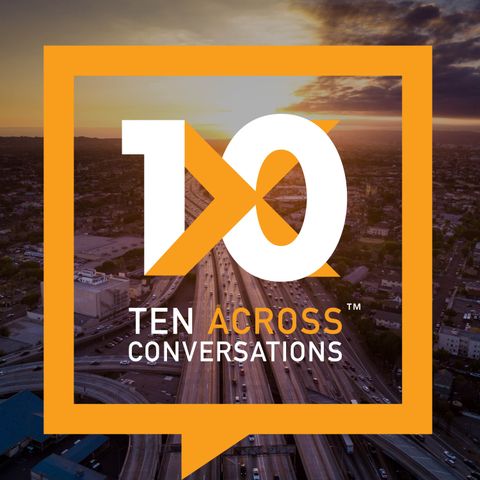Fewer Roads Could Mean More Freedom with Megan Kimble

Download and listen anywhere
Download your favorite episodes and enjoy them, wherever you are! Sign up or log in now to access offline listening.
Description
When Henry Ford streamlined vehicle manufacturing in the 1920s, he vaulted the U.S. to its status as a global economic leader. Soon after, the passage of the Federal-Aid Highway Act...
show moreThe 2021 Infrastructure Investment and Jobs Act (IIJA) represents the largest surge in federal transit funding ($20.5 billion) to date, but it is still small compared to the additional $118 billion allocated by Congress to keep the HTF solvent. A similar budget pattern appears at the state and local levels with an average 6% of general funding going toward highways and roads, compared to the 2% spent on housing and urban development, according to the Urban Institute.
Now, a growing coalition of freeway fighters is pushing back against the nation’s largely unquestioned prioritization of roads, claiming that this paving of the nation to support vehicle travel has come at the expense of human and environmental wellbeing. They further point to evidence that the expansion of highways does little to address congestion or route efficiency for drivers.
This is particularly true in Texas, a state at the heart of Megan Kimble’s new book City Limits: Infrastructure, Inequality, and the Future of America’s Highways. Here, widening of the I-10 from eight to 22 lanes through a busy part of Houston came at a cost of $2.8 billion and 20 city blocks’ worth of existing and potential development. Though the project aimed to address congestion, it actually increased rush hour travel times by 33%.
Listen in as Ten Across founder Duke Reiter and author Megan Kimble explore the history of community and economic trade-offs in our ever-expanding network of Texas and U.S. roads-- why it becomes more difficult to sustain and what alternatives there may be for the future.
Information
| Author | Ten Across |
| Organization | Ten Across |
| Website | - |
| Tags |
Copyright 2024 - Spreaker Inc. an iHeartMedia Company
